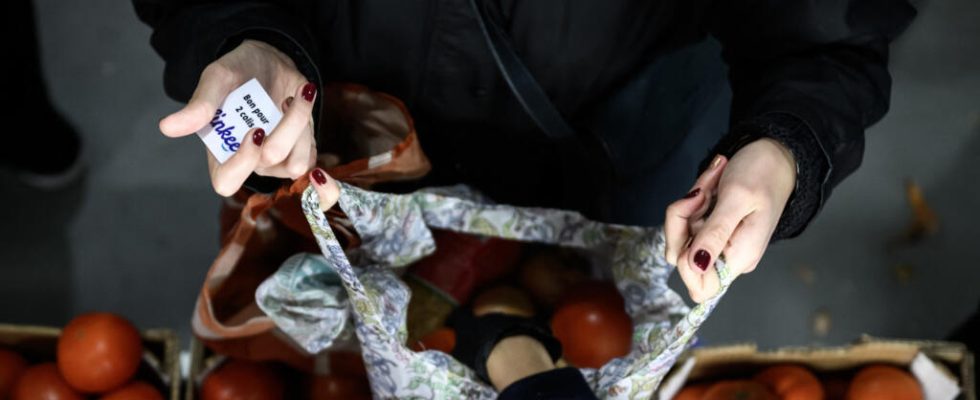A few weeks ago, Unef, the National Union of Students of France, was worried about the rising cost of living for students. The Federation of General Student Associations, for its part, denounces record back-to-school costs. Students have more and more recourse to outside aid, such as food distributions.By Titouan Allain
In front of the La Maison Bleue social center in the north of Paris, several hundred students line up to collect food baskets. Some have been there for an hour and a half, under a scorching sun.
Inside the building, the twenty volunteers are hurrying to finish installing the last crates of food. Among them, Rafael, a Brazilian student who arrived in France a year ago, and who did not expect such precariousness as a student: “ When you arrive in France, you don’t think there will be 300 students in the middle of August, because it’s a rich country, but it’s a bit complicated here in France, it’s hot for everything the world “, he notes.
And he is not the only one to be surprised to see so many people at the distributions in the middle of summer. Younès, a volunteer for two and a half years, easily sees the effects of rising prices: “ The consequences of inflation, we feel them for students. During the summer holidays, we currently do the figures that we do during the school year in the 18th arrondissement. So at the start of the school year, I think that we will have fairly substantial increases in beneficiaries fears Younès.
1.5 million meals distributed to students
This year, Linkee distributed the equivalent of nearly 1.5 million meals to students, 50% more than in 2022, when the year is not over.
To provide these meal baskets, the association relies on the recovery of unsold items from traders, a complex task according to Myriam Boudali, Linkee’s project and advocacy manager: “ It’s a great logistical complexity and above all, it’s difficult to make them understand that they don’t have to throw it away, since it’s a habit for many “, explains Myriam Boudali. ” Last year, it represented 400 tonnes of unsold items that we were able to recover. At the level of France, it is estimated that 10 million tonnes go in the trash every year, so we still have plenty to do. We have a good margin. »
At the exit of the distribution, the students leave relieved, and the bags well loaded: “ Fruits, vegetables, salad, yogurts, bread. What to do for the week. »
Sacrifice your studies to work and be able to eat
The beneficiaries come from all kinds of studies, and countries, like Malika, originally from India: ” As an Indian student, distributions help me a lot because Paris is a very expensive city. It helps us a lot in daily life and saves us some money for groceries, and it helps me in many ways. »
According to UNEF, more than a third of students work full time to support themselves, which would increase the risk of failing exams by 40%. This is the case of this student, in her third year of a computer science degree, who came to get a packed lunch: ” That’s what I’ve been doing all year, which meant that I didn’t pass my year because it’s either I work or I pass my studies, but I’m not going to eat. So in the end, I made a choice, it’s I work and we’ll see. »
Still according to Unef, nearly 4 out of 10 students would skip meals, for lack of means.
